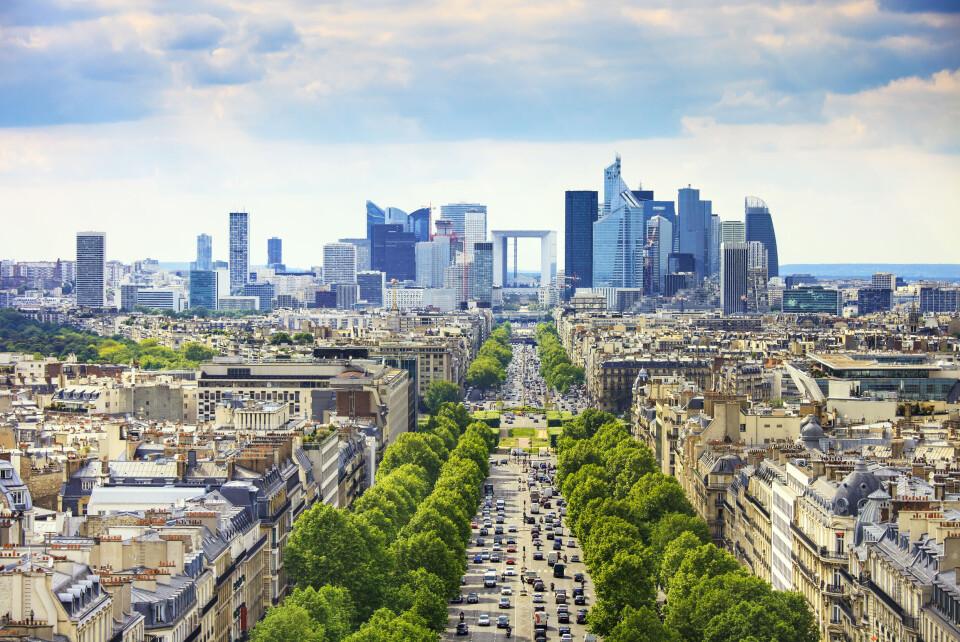-
It’s not just Britons speaking English in France – so why the unfair criticism?
A reader writes on the complexities of adopting the language in different contexts
-
Becoming a cashless society would not solve France's problems
Economic historian Patrice Baubeau says the trend is accelerating
-
Is it ever right to blend red and white wine?
Readers contribute to French wine snobbery debate
‘Don’t let recent protests in France detract from the positives’
While recent protests have highlighted the challenges France faces, there are also reasons to be optimistic, says columnist Richard Ogier

The white noise of retirement reform has obscured a handful of significant and encouraging developments for France.
Unemployment has dropped to 7.2% when it has been nearer to double digits for most of the past five decades.
National statistics agency Insee says almost 1.75 million new jobs have been created in France in five years, 97% in the private sector.
Inflation, meanwhile, is currently lower than in Germany, Britain, Italy, the Scandinavian countries and Australia.
The CAC-40 share index, whose companies employ about 1.5 million people in France, has added 30% in value since the start of the year.
Listed firms in aeronautics, armaments, alcoholic beverages and the luxury sector continue to perform strongly, the latter linked to a very French specificity and image.
French style remains unbeatable
For much of the world, French style remains unbeatable.
New EU figures show that Paris Ile-de-France is one of the most competitive regions in Europe, as is more broadly France compared to Britain and Germany.
This is based on 68 criteria including basic business services, innovation, access to technology (including fibre optics) and an educated workforce.
Of course, continuing strife over retirement reform would risk denting France’s allure to foreign investors.
For the moment however, in a highly competitive and febrile international environment, France has become immensely attractive to foreign money, meaning a boost for growth and more new jobs in the future.
France’s Public Investment Bank says that about a third of French factories closed in the 20 years to 2015.
A new Trendeo consultancy study, however, has found that since 2017 factories are being built at a faster rate than they are being lost (if extensions to existing facilities are included).
‘Green shoots’ of recovery?
Evidence of the ‘green shoots’ of a long-hoped-for French industrial recovery?
Perhaps.
At the very least, the haemorrhaging of industrial jobs seems to have slowed.
These developments are largely ignored by populists or dismissed as ‘ultra-liberal,’ rather than seen as the product of a French brand of social-liberalism that, for all its problems, is bearing some fruit.
Triumphalism about the French economy would obviously be misplaced.
Problems of cost-efficiency, reduced international market share, too much bureaucracy and the eye-watering debt and deficits continue to undermine future prospects.
10 million living in poverty
France has about 10 million people living in poverty, according to the Secours Catholique charity, who struggle to cover rent, healthcare, transport and the costs of basic clothing and food.
Like the structural unemployment that has hurt three generations of French families financially and psychologically, poverty is surely part of the deeper explanation for the current malaise around a modest retirement reform.
The French state is one of the most redistributive in the world, which has tended to mean relatively low income disparity compared to other major developed economies.
But France is also one of the world’s highest taxing countries, when taxes are measured with net social contributions as a percentage of Gross Domestic Product (though not as income tax or taxation per household).
Government spending is one of the highest of the OECD countries.
Healthcare and education slipping
France has slipped in international rankings on healthcare provision and education, even as it has spent more.
Polling shows that the lived experience of ordinary French people is that the quality and availability of their public services has declined.
Clearly spending more does not necessarily mean better results.
The point is that solutions are not as easy as merely borrowing and spending on credit, which take deficits and the debt yet further into the red – precarious when interest rates are high.
Remember that as well as the existing problems of declining French prosperity (GDP per inhabitant) and of service delivery in health, hospitals and education, are the vast new challenges of ecological ‘transition’ and the nuclear sector refit and expansion.
These are going to cost – and require concerted, collective action.
As things stand, the current positives could easily be snuffed out.
Related articles
‘France and Germany are like a couple who argue but always make up’
‘Macron’s nuclear power push is high-risk and high-reward for France’
‘Strikes highlight the mess at the heart of French politics’
























